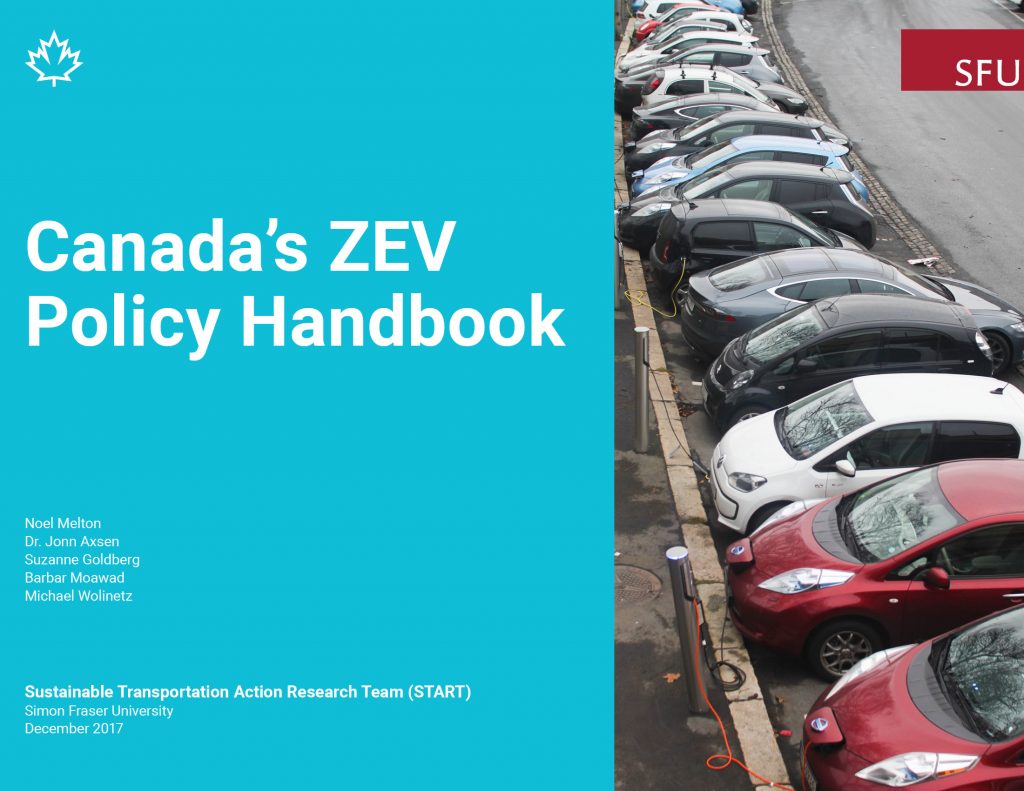Canada’s ZEV Policy Handbook is the first comprehensive analysis of the policy options available to various levels of government to encourage the adoption of zero-emission vehicles (ZEVs). Published by Simon Fraser University’s Sustainable Transportation Action Research Team (START) and funded in part by Metcalf, the report states that current ZEV policies by themselves are insufficient to achieve our climate mitigation targets and new approaches are needed. It is designed to assist decision makers in choosing which policies Canada should adopt in order to hit the target of 30 percent of new vehicle sales being electric by 2030. This is a commitment the Government of Canada made along with nine other countries to the Clean Energy Ministerial 30@30 global initiative.
After substantive analysis, the Handbook identifies three different policy pathways that could achieve the 2030 sales goals for Canada – a long-term subsidy, a ZEV mandate or a much more ambitious version of national vehicle emissions standards. “Each package presents different tradeoffs,” says Dr. Jonn Axsen, one of the report’s authors. “A ZEV requirement has the highest likelihood of success, with little need for government expenditure. However, some automakers seem to be resisting such a policy. A very strong incentive strategy could also work – though it will cost the government a lot of money in the long-run.”
Zero-emission vehicles are vehicles with a propulsion system that can operate without producing greenhouse gases or other air pollutants at the tailpipe. They include vehicles powered by electricity and hydrogen.


